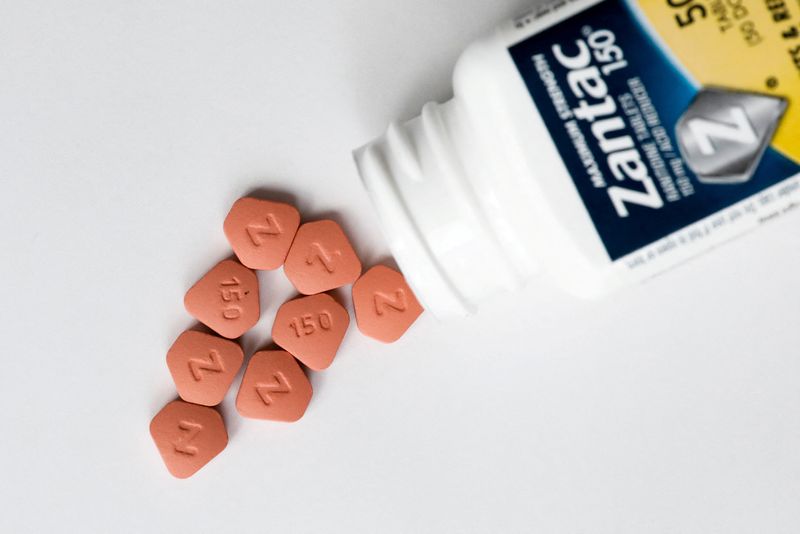By Brendan Pierson
(Reuters) -Lawyers for a man who alleges he developed bladder cancer after taking GSK Plc's heartburn drug Zantac urged a California judge on Thursday to allow expert testimony linking the drug to the illness at an upcoming trial.
The trial in the case, brought by California resident James Goetz, is scheduled to begin Feb. 27 before Alameda County Superior Court Judge Evelio Grillo. It will offer the first test of how Zantac cancer claims may fare in state courts, and its outcome could depend heavily on what expert testimony Grillo allows.
A federal judge in December threw out all of the Zantac cases in federal court, some 50,000, after finding the opinions of the experts put forth by plaintiffs to establish their cancer was caused by the drug were not backed by sound science.
Tens of thousands of cases still remain in state courts, many consolidated before Grillo in California.
Brent Wisner, a lawyer for Goetz and other Zantac plaintiffs, argued that jurors should hear expert testimony about studies that he called "pretty powerful evidence that there is a causal relationship" between consuming Zantac's active ingredient, ranitidine, and cancer.
GSK has denied that the drug can cause cancer.
"Obviously our position is, no it doesn't," GSK lawyer Kimberly Branscome said at the hearing, which Reuters viewed via Courtroom View Network.
Zantac, first approved by the U.S. Food & Drug Administration in 1983, became the world's best selling medicine in 1988 and one of the first drugs to top $1 billion in annual sales.
Originally marketed by a forerunner of GSK, it was later sold successively to Pfizer Inc (NYSE:PFE), Boehringer Ingelheim and finally Sanofi (EPA:SASY) SA. All four drugmakers are facing Zantac lawsuits and have denied that the pill causes cancer.
In 2019, some manufacturers and pharmacies halted sales of the drug over concerns that its active ingredient, ranitidine, degraded over time to form a chemical called NDMA. While NDMA is found in low levels in food and water, it is known to cause cancer in larger amounts.
The FDA in 2020 pulled all remaining brand name Zantac and generic versions off the market, citing research showing the amount of NDMA in the products increases the longer the drug is stored and could potentially become unsafe.

Lawsuits began piling up soon after the recalls began from people who said they developed cancer after taking Zantac. Plaintiffs said the companies knew, or should have known, that ranitidine posed a cancer risk and that they failed to warn consumers.
Cases have been filed linking Zantac to at least 10 types of cancer. The now-dismissed federal litigation was limited to bladder, stomach, esophageal, liver and pancreatic cancers, but cases over other cancers remain in state courts.